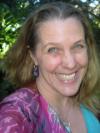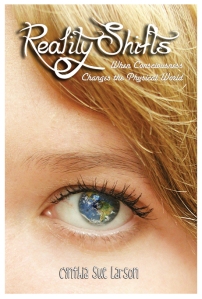| Online: | |
| Visits: | |
| Stories: |

| Story Views | |
| Now: | |
| Last Hour: | |
| Last 24 Hours: | |
| Total: | |
This Year, Resolve to Become Who You Truly Are
There was a time when higher education could be counted on to be a truly transformative experience, in which it was possible for one’s sense of identity to be broken down before being built back up again with a fresh new sense of connection, meaning, and purpose in the world. This idea was beautifully demonstrated in Robin Williams’ film, Dead Poets Society, where he played an English teacher who instructed his students to rip out the introductory pages to their poetry books that contain mathematical rating systems for evaluating prose. Teacher John Keating (played by Robin Williams) says to his class:
Excrement. That’s what I think of Mr. J. Evans Pritchard. We’re not laying pipe, we’re talking about poetry. How can you describe poetry like American Bandstand? I like Byron, I give him a 42, but I can’t dance to it. Now I want you to rip out that page. Go on, rip out the entire page. You heard me, rip it out. Rip it out! Go on, rip it out….Gentlemen, tell you what, don’t just tear out that page, tear out the entire introduction. I want it gone, history. Leave nothing of it. Rip it out. Rip! Begone J. Evans Pritchard, Ph.D. Rip, shred, tear. Rip it out. I want to hear nothing but ripping of Mr. Pritchard. We’ll perforate it, put it on a roll. It’s not the Bible, you’re not gonna go to hell for this. Go on, make a clean tear, I want nothing left of it….Rip it out, rip!…I don’t hear enough rips….Keep ripping, gentlemen. This is a battle, a war. And the casualties could be your hearts and souls. (collecting scraps of paper in a metal wastebasket) Thank you, Mr. Dalton. Armies of academics going forward, measuring poetry. No, we will not have that here. No more of Mr. J. Evans Pritchard. Now in my class, you will learn to think for yourselves again. You will learn to savor words and language. No matter what anybody tells you, words and ideas can change the world. I see that look in Mr. Pitt’s eye, like 19th Century literature has nothing to do with going to business school or medical school. Right? Maybe. Mr. Hopkins, you may agree with him, thinking ‘Yes, we should simply study our Mr. Pritchard and learn our rhyme and meter and go quietly about the business of achieving other ambitions.’ I have a little secret for ya. Huddle up. Huddle up!
We don’t read and write poetry because it’s cute. We read and write poetry because we are members of the human race. And the human race is filled with passion. Medicine, law, business, engineering, these are noble pursuits, and necessary to sustain life. But poetry, beauty, romance, love, these are what we stay alive for. To quote from Whitman: ‘O me, o life of the questions of these recurring, of the endless trains of the faithless, of cities filled with the foolish. What good amid these, o me, o life?’ Answer: that you are here. That life exists, and identity. That the powerful play goes on, and you may contribute a verse. What will your verse be?
While school may or may not provide you with the means for such inner and outer transformation, the benefits of feeling a sense of being on fire with doing and being what you love cannot be overstated. You can see the difference between a person who is living the life of their dreams and someone who lives as if disillusioned, merely going through the motions, as if on autopilot in a boring rerun, in which each day seems emptier and less meaningful than the day before. You may initially crave a life of practical realism, emulating those who seem powerful and successful, but at some point if you lack a sense of inner meaning, a yearning deep within you for a life transformation calls, beckoning you to contribute your verse of poetry to the world.
So how is such transformation possible? We can find clues in what has been happening with our institutions of higher learning, discovering how and why they can no longer be counted on to provide us with a deep, burning inner sense of purpose. I’ve read two books recently that do an excellent job of pointing out what’s wrong with the university system today, and how we can take steps to improve the system. These books point out that universities today are now being run like corporations focused exclusively on churning out products–employable graduates–that meet certain specifications, with the end goal of ever-increasing profitability, rather than ever-improving sense of ethical goodness in humanity.
 In One Magisterium, Seán Ó Nualláin suggests we wrest higher education away from bottom-line focused university businesses, placing it instead in the care of those we entrust to both inculcate knowledge and improve our genuine capacity to learn. Ó Nualláin explains, “Historically, both of these processes have occurred in a religious environment; it is not unfair to say that we have yet to work out how to frame the drive for understanding in a purely secular context.” The framework of the MagisteriumÓ Nualláin describes thus provides a framework from whence noetic action, morality, and aesthetics reflect a hierarchy of value emanating from a Divine Source.
In One Magisterium, Seán Ó Nualláin suggests we wrest higher education away from bottom-line focused university businesses, placing it instead in the care of those we entrust to both inculcate knowledge and improve our genuine capacity to learn. Ó Nualláin explains, “Historically, both of these processes have occurred in a religious environment; it is not unfair to say that we have yet to work out how to frame the drive for understanding in a purely secular context.” The framework of the MagisteriumÓ Nualláin describes thus provides a framework from whence noetic action, morality, and aesthetics reflect a hierarchy of value emanating from a Divine Source.
 In Excellent Sheep, William Deresiewicz decries elitism that has become rampant in western society as it is demonstrated in university education. Deresiewicz makes a call for universities to stop being run like corporate businesses, with constant concern about school ranking, exclusivity, fame and fortune of alumni–and be operated instead by monks, or some similar group of ethically-minded individuals who are genuinely concerned about their students’ souls. When students are more focused on meeting admission requirements to get into prestigious institutions, they often continue their excellent jumping-through-hoops skills in college, taking more units and credits than make much sense, toward one of the four majors considered ideal (medicine, law, business, consulting). What is lost in this shuffle is a sense of what makes each of us who we truly are.
In Excellent Sheep, William Deresiewicz decries elitism that has become rampant in western society as it is demonstrated in university education. Deresiewicz makes a call for universities to stop being run like corporate businesses, with constant concern about school ranking, exclusivity, fame and fortune of alumni–and be operated instead by monks, or some similar group of ethically-minded individuals who are genuinely concerned about their students’ souls. When students are more focused on meeting admission requirements to get into prestigious institutions, they often continue their excellent jumping-through-hoops skills in college, taking more units and credits than make much sense, toward one of the four majors considered ideal (medicine, law, business, consulting). What is lost in this shuffle is a sense of what makes each of us who we truly are.
What we can learn from viewing how higher education can no longer be counted on for providing a crucible by which young people can discover how their unique gifts can be recognized and appreciated for helping serve the common good–and realize that it’s not too late at any point to seek such spiritual awakening! When you know that leadership is more than seeking power and prestige, and feel the difference between sincere compassionate involvement and greedy self-interest, you experience a yearning to fill your life with people who truly care. This inner knowingness–this gut feeling–is a big step forward in daring to live a life less ordinary, contributing your verse of poetry to the world.
So let today be the beginning of a new way of living.
Carpe diem!
Seize the day!
The video version of this blog post can be found on YouTube at: http://youtu.be/pqIELXDrr1s
______
Cynthia Sue Larson is the best-selling author of six books, including Quantum Jumps, Reality Shifts, Aura Advantage, High Energy Money, and Karen Kimball and the Dream Weaver’s Web, and the Aura Healing Meditations CD, but you’re just as likely to find her meditating or practicing martial arts as writing books. Cynthia has been featured in numerous shows including the History Channel, Coast to Coast AM, and BBC. Learn how consciousness changes the physical world by subscribing to her (free!) popular monthly ezine published at: www.realityshifters.com
Source: https://cynthiasuelarson.wordpress.com/2015/01/01/this-year-resolve-to-become-who-you-truly-are/





